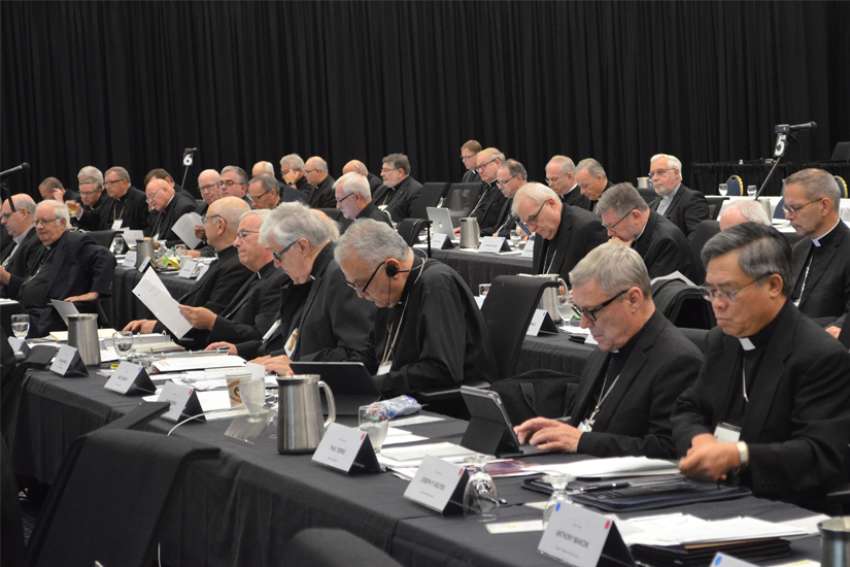And while the global pandemic has driven the plenary assembly online this year, the move by the Church’s leadership to meet and do its business over the Internet in this instance is just one of the ways that the international health crisis will change the Church forever going forward, said Winnipeg Archbishop Richard Gagnon.
“The situation with COVID has obviously had a large impact on the Church and we will definitely be talking about that and about how the Church moves forward in these unprecedented times,” Gagnon, CCCB president, said in a telephone interview from Winnipeg.
“All the regions in the country are going to give a report on how they have had to deal with the pandemic on their operations and what their experiences have been and how these experiences may be able to help the Church move forward as this situation continues and hopefully eventually we get back to a form of a more normal way of doing things.”
One thing Gagnon expects as the new normal for the Church across Canada is the move towards offering more services online. That was born of necessity as places of worship were closed to parishioners during the height of the pandemic when public health officials severely curtailed the number of people who could gather in public. Churches have since re-opened, but with limited attendance, a situation that remains in place for now. Restrictions vary across the nation.
“There has always been some level of online presence of the Church,” Gagnon said, but now those in the Church who may have been hesitant to use modern technology to its fullest can see the benefits of offering some services online.
“This technology was used before, but never to the extent that it has been now,” Gagnon said. “I think any of that past opposition to having online services is not there anymore because of the situation and the experience of having to do it.”
But while the marriage of Church and modern technology needed to get through the pandemic may indeed have long-range implications for how the Church operates in the future, there is still a deep commitment to one-on-one interaction between clergy and their parishioners.
“While we have heard of the positive experiences that going online has offered our churches and parishioners, we have also heard how important in-person gatherings and the personal connection that has for people and how important that is in people’s lives,” Gagnon said.
The decision by the CCCB to hold its annual plenary assembly as an online event this year does mean some of the features of past assemblies will not be part of this year’s event that runs Sept. 21-25. There will be no keynote speaker this year and representatives of Catholic lay organizations who usually attend as observers will not be participating.
“In order to allow for fruitful dialogue and meaningful deliberation by the bishops during the plenary, this year’s timetable and agenda were streamlined to focus on the most essential ecclesial and administrative matters for the conference,” said a statement released by CCCB communications co-ordinator Lisa Gall Sept. 14. “It was for this same reason that this year there will not be any ecumenical observers from other churches nor any of the traditional observers representing a number of national Catholic organizations.”
Other topics to be discussed during the week include “national priorities for the upcoming year (2020-2021); responsible ministry; pastoral care of Indigenous peoples; an update on the organizational changes involving the Canadian Catholic Organization for Development and Peace as well as recommendations from a joint CCCB-CCODP review of the latter’s international partners; and various concerns regarding initiatives and proposals by the federal government,” the CCCB’s Sept. 14 statement said.
On a practical level, Gagnon said Canada’s bishops will meet for two hours a day via the Internet for discussions, which he said is a reasonable amount of time to be staring at a computer screen before the bishops start to suffer screen-time burnout.
Keeping the online discussions to short intervals each day is “an act of mercy,” Gagnon joked.
People can stay abreast of the plenary discussions via the CCCB’s Twitter feed (@CCCB_CECC), its website (cccb.ca) and daily briefings on Salt + Light TV at 6 p.m. (ET).


